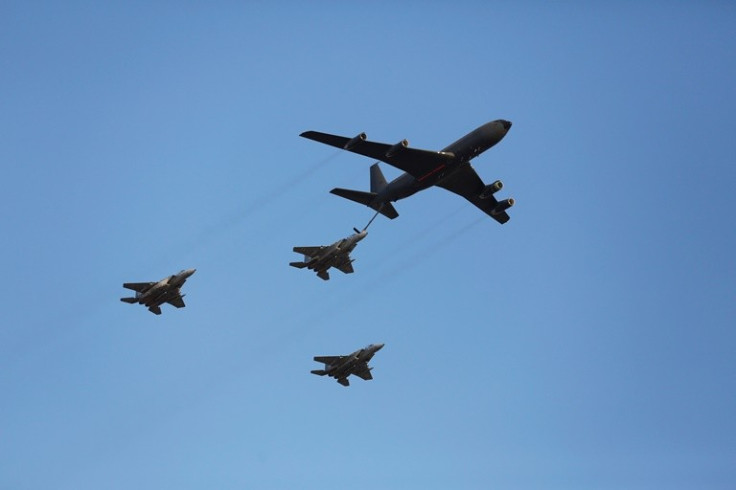Israel: We Will Go It Alone Against Nuclear Iran

The Israeli air force is preparing to bomb Iran's nuclear facilities, its own website confirms. Israeli jet fighters, including F15s and F16s, have taken part in extensive exercises alongside the Greek air force, practising midair refuelling and "dummy runs" in a show of force to Iran and the international community.
Speaking ahead of the Geneva conference (15-16 October), Israeli Prime Minister Benjamin Netanyahu has warned the west that Iran is not to be trusted, despite friendlier relations between the US and the Middle Eastern nation since the election of its new moderate leader, Hasan Rowhani, in June.
As well as speaking at the United Nations, Netanyahu called his counterparts in Britain and France, David Cameron and Francois Hollande, insisting that sanctions against Iran are having the desired effect and that Israel will if necessary stand alone in denying Iran its nuclear ambitions.
Netanyahu's tough stance may be causing some frustration internationally - many critics feel they've been hearing the same warnings for decades - but the PM still seems popular at home. A recent poll found two-thirds of Israelis do not think President Obama will be able to prevent Iran developing nuclear weapons, despite his promises to the contrary.
Many Israelis continue to believe Iran poses an existential threat to their country, particularly in light of inflammatory comments made by Rowhani's predecessor, President Mahmoud Ahmadinejad. On leaving office Ahmadinejad told supporters: "I will inform you with God as my witness, a devastating storm is on the way that will uproot the basis of Zionism."
Israel is adamant that its near-neighbour and bitter rival can never be allowed to possess weapons of mass destruction. Iran has always insisted its uranium enrichment programme is for peaceful purposes and hopes to ease sanctions which have crippled its economy at the Geneva conference.
US State Department deputy spokeswoman Marie Harf said last week that Iran still has much to do to convince the west of its intentions, but that diplomacy remains the best way forward "in large part because the alternative has a lot of incredibly grave consequences that would go along with it."
© Copyright IBTimes 2025. All rights reserved.






















